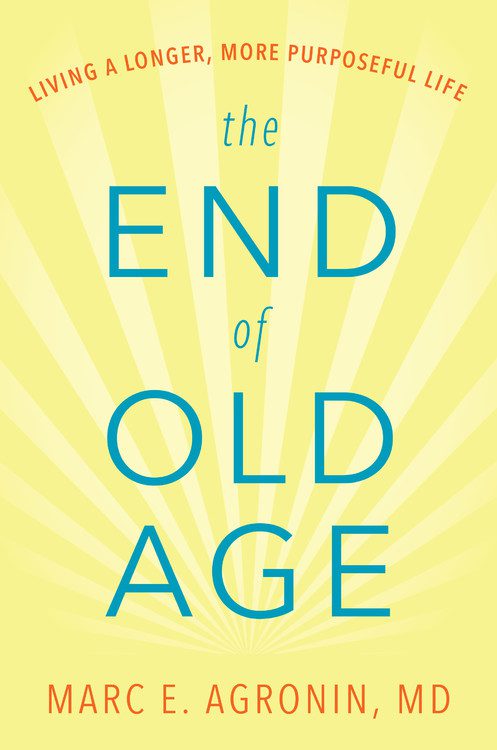 “The End of Old Age: Living a Longer, More Purposeful Life” by Marc E. Agronin is a guide to growing old with as much grace and vigor as possible. He starts out describing why society needs its elders. In some anthropology books, the authors write that in tribal days, aging was beneficial because an individual who could no longer reproduce was of no use to the tribe. When the elderly died, they cleared the way for young, fertile individuals who could hunt and bear young.
“The End of Old Age: Living a Longer, More Purposeful Life” by Marc E. Agronin is a guide to growing old with as much grace and vigor as possible. He starts out describing why society needs its elders. In some anthropology books, the authors write that in tribal days, aging was beneficial because an individual who could no longer reproduce was of no use to the tribe. When the elderly died, they cleared the way for young, fertile individuals who could hunt and bear young.
Agronin sees the role of elders as being far more than dying a swift death to make way for the young. He believes that elders had and have many important roles. One is a savant, an individual who knows a great deal about a topic and is able to share that information. Another is a sage — someone with tremendous life experience. Still another is a curator, someone who cares for a valuable object or memory. To illustrate this concept, Agronin uses the example of an elderly woman who spent time in Auschwitz when she was a child. Now an older woman, she brings children to the concentration camp and shares her stories with them. The next role an elder can play is that of creator and a final role is seer.
The next question the author addresses is why we age. He discusses a concept he calls “age points,” which include an event — a moment when a person realizes that he or she is aging; suspension — a period of uncertainty; reckoning — a way to conceal gaps between what we have and what we need — and resolution, coming to terms with aging.
The next section of “The End of Old Age” is about thriving. The author discusses how it can be easier — but so much more boring — to remain stagnant. He makes the point that people today even want our looks to be stagnant, always remaining youthful. Agronin describes this stage of aging, when the individual doesn’t want to take on new hobbies or tasks as “geropause.” The best way to combat geropause, he says, is to start working on a project you once enjoyed or to start on an entirely new project.

Credit: timesfreepress.com
The final section of “The End of Old Age” is “The Action Plan,” in which Argonin outlines five steps. The first is to define your limits. You don’t want to try and fail because you took on too much. The next is to assess your resilience. How many times can you try and fail?
Next comes defining your reinvention. Do you want to take up a hobby or task you’ve done before, or do you want to try something completely new? What do you want your legacy to be? Who do you want to inherit your legacy? Find a way to celebrate your new activity.
The back of the book has worksheets to allow you to work your way into a graceful, enjoyable old age. “The End of Old Age” is an informative book. Dr. Agronin is a psychiatrist who works with older patients. The best part of his book is when he shares stories from his practice. Some parts of “The End of Old Age” are a little dry, especially when he over-explains his lists. Overall, though, this is an interesting book that will help older people and those who love them.
Want to learn more? Read our interview with Dr. Marc Agronin here.

 “The End of Old Age” by Marc E. Agronin, MD
“The End of Old Age” by Marc E. Agronin, MD


 “Help Me, Helen”
“Help Me, Helen”
 Recovering Cremation Remains After the Los Angeles Fires
Recovering Cremation Remains After the Los Angeles Fires
 “As Tears Go By” by Marianne Faithfull
“As Tears Go By” by Marianne Faithfull














